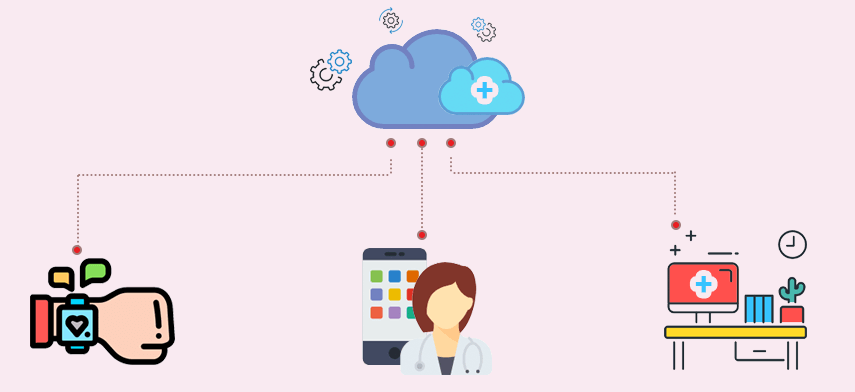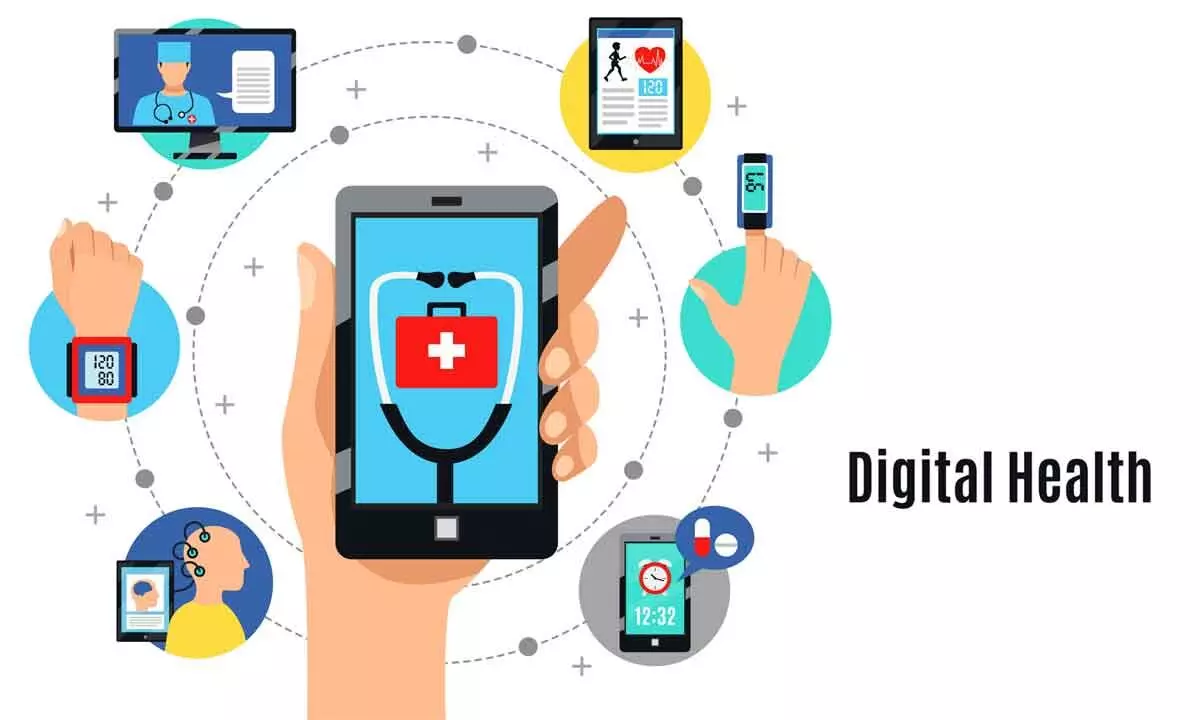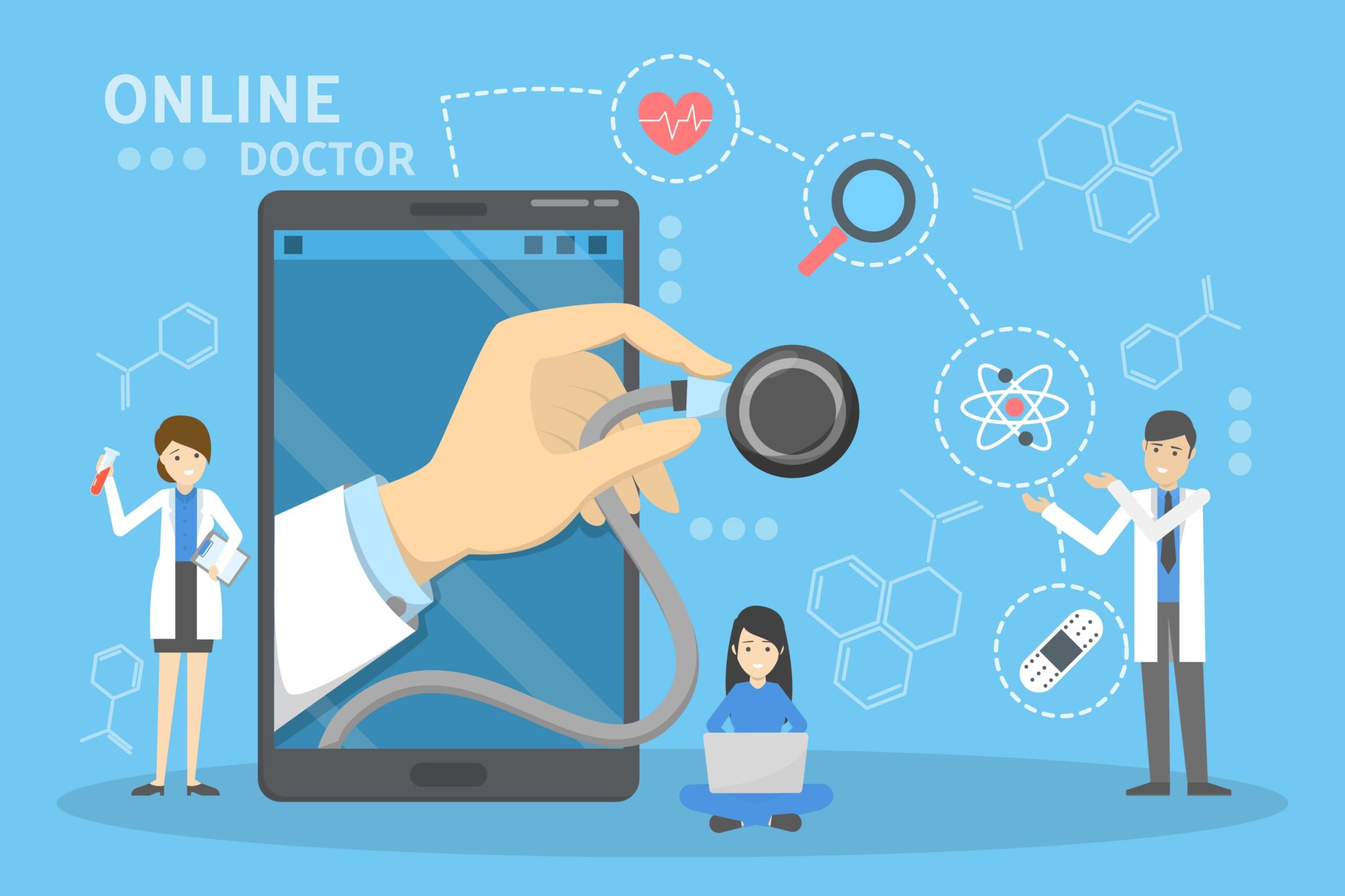Doccure – Making your clinic painless visit?
- Mar 06, 2023
- Neurology
Why is Digitization of Healthcare Inevitable?
The world of healthcare is undergoing a revolution, with digitalization becoming an increasingly powerful force in the industry. From big data analytics to artificial intelligence, the potential for technology to improve patient outcomes and reduce overall costs has never been greater. In this blog post, we’ll explore why the digitalization of healthcare is inevitable and the many benefits it offers for patient care.
Why is the Digitalization of Healthcare Inevitable and the Role it Plays
1. Increasing Pressure on Healthcare Systems
The healthcare industry is facing a variety of challenges, with an aging population, rising medical costs, and a shortage of medical professionals all putting pressure on the system. Digital solutions offer a way to address these issues without compromising the quality of care or breaking the bank. From automated scheduling systems to telemedicine platforms, digitalization can improve workflow efficiency and enable healthcare providers to deliver better care for less money.
2. Improved Patient Outcomes
Digital technologies are able to leverage data to provide more personalized treatment plans and better patient outcomes. From predictive analytics that can spot potential health issues before they become serious problems to AI-powered diagnostics, digitalization offers a way to ensure that patients receive the best possible care.
3. Increased Access to Care
Digital healthcare solutions are also providing increased access to care in areas where access is traditionally limited due to geography or cost constraints. From virtual primary care visits and telemedicine platforms to remote monitoring services, digital healthcare solutions are helping people get the medical attention they need when and where they need it most.
4. Cost-Effective Solutions
By automating routine tasks such as scheduling, record keeping, billing, and drug dosing calculations, digital technologies are helping healthcare providers save money and reduce costs. This can help free up resources to be used for more impactful and personal aspects of care, such as spending more time with each patient or investing in new equipment.
5. Streamlined Processes and Automation
Digital solutions are also helping streamline processes within healthcare organizations, making it easier for providers to manage their workloads and keep up with the latest trends in medical advancements. Automation tools like robotic process automation (RPA) can automate data entry tasks, freeing up staff time to focus on more complex activities. Additionally, cloud-based technologies enable clinicians to securely store and access patient records from any location while telemedicine makes it possible for patients to receive remote treatment without having to leave their homes.
What Is Digital Health?
Digital health refers to the use of digital technologies such as mobile phones, computers, wearable devices, sensors, and software to enable health-related activities including monitoring and diagnostics, communication between providers and patients, remote care delivery, and clinical decision-making. It also includes the use of electronic medical records (EMRs) to store patient data securely and electronically.
Benefits of Digital Health
The digital health revolution presents incredible opportunities for improving patient outcomes and reducing overall costs. Here are some of the primary benefits:
Improved Access to Care
Digital health solutions make it easier for patients to access care, allowing them to connect with providers from anywhere and get a diagnosis without having to leave their homes or wait in line at the doctor’s office. This helps reduce wait times, making it easier for people to receive timely treatment.
More Efficient Delivery of Care
By using digital health tools and technologies, healthcare providers can be more efficient in delivering quality care. For example, they can quickly review medical records and use artificial intelligence (AI) algorithms to diagnose diseases. This can lead to more accurate diagnosis and treatment plans, as well as improved medication adherence.
Reduced Costs
Digitalization of healthcare leads to cost savings across the board. For example, electronic medical records (EMRs) save time by eliminating paperwork and other manual processes. Automated processes also reduce overhead costs associated with hiring staff for administrative tasks. In addition, digital health solutions often enable remote care delivery, which can lead to fewer trips to the doctor and hospital stays.
Improved Data Security
The use of digital health tools helps protect patient data from unauthorized access and misuse. Many digital health solutions use encryption technology to keep patient information secure while being transmitted or stored in the cloud. These systems are designed with multiple layers of security, including authentication and access control measures.
Better Quality Outcomes
Through the use of digital health solutions, healthcare providers can monitor patients more closely and provide better care. For example, virtual visits allow doctors to track progress over time and make adjustments if necessary. In addition, AI-assisted diagnosis can help identify illnesses earlier on when they’re easier to treat. This can lead to improved outcomes for patients.
Enhanced Patient Engagement
Digital health technologies enable healthcare providers to engage with their patients more effectively. For instance, patient portals facilitate communication between physicians and patients by providing a secure platform for sharing information and exchanging messages. In addition, wearables such as fitness trackers allow users to monitor their health and share data with their healthcare providers.
The Future of Digital Health
The digital health revolution is transforming the way we deliver care and improving patient outcomes. As technology continues to evolve, more innovative solutions will likely be developed to address the needs of patients. We can expect the use of digital health tools to become more widespread in the coming years as healthcare providers embrace these technologies for better quality care.
Conclusion
In conclusion, the digital health revolution is transforming the way healthcare is delivered and making it easier for patients to access care. Digital health solutions provide improved access to care, more efficient delivery of services, reduced costs, better data security, improved quality outcomes, and enhanced patient engagement. With continued advancements in technology, we can expect even greater breakthroughs in digital health that will further improve patient experience and outcomes. Healthcare providers have a unique opportunity to leverage digital technologies to increase efficiency and offer better treatment options for their patients. Ultimately, digital health technologies are paving the way for a brighter future in healthcare.






